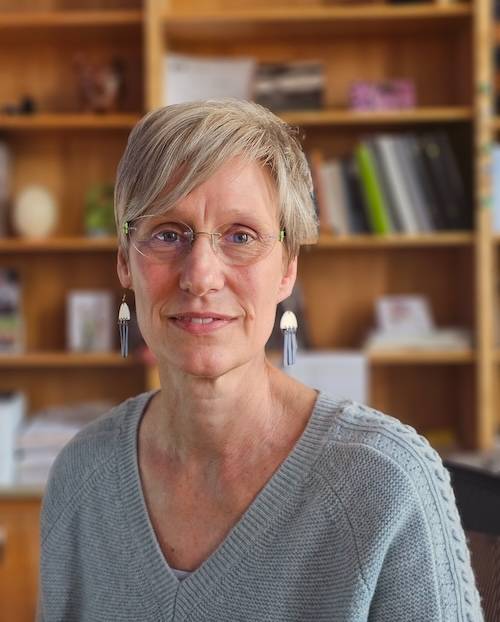Diane O'Brien elected to the National Academy of Sciences

Diane O'Brien, interim director of the Institute of Arctic Biology, was recently elected to the National Academy of Sciences.
Amy Loeffler
907-474-7933
May 13, 2024
Diane O’Brien, interim director of the Institute of Arctic Biology and professor of biology and wildlife at the University of Alaska Fairbanks, has been elected to the National Academy of Sciences. The recognition acknowledges distinguished and continuing achievements in original research.
“It is a great honor and privilege to be recognized by the Academy in this way,” O’Brien said. “UAF has been a wonderful place to grow a research career that crosses disciplinary boundaries. I’ve benefited enormously from interactions with colleagues here and elsewhere. I’m looking forward to representing the university and the state of Alaska in my service with the National Academy of Sciences.”
There were 120 members elected this year, bringing the total number of active National Academy of Sciences members to 2,617. Membership in the organization is considered one of the highest honors a scientist can receive.
O’Brien is the second Alaska-based researcher to be elected to the organization, joining Terry Chapin, professor emeritus of ecology, who was elected in 2004.
Her research investigates nutritional questions in public health and ecology using naturally occurring stable isotopes.
Among other projects, she and her team have collaborated with Alaska Native communities to use stable isotopes to measure the critical importance of traditional foods to the health of Alaska Native people.
To link diet with health variables, O’Brien’s team measured thousands of blood samples collected through health-related research projects over decades. Blood stable isotopes were strongly related to how much traditional food people ate and provided a measure of diet that could be linked to health data.
The methodology using stable isotopes was borrowed from ecology and geosciences and demonstrates the transdisciplinary nature of O’Brien’s research. In ongoing research, she also evaluates other stable isotope tools in nutrition that leverage larger clinical studies outside of Alaska.
“The process for election into this community is extremely rigorous,” said Chapin. “I am pleased that Diane and her work are bringing a further Alaska focus to the research portfolio of the academy.”
A full professor since 2015, O’Brien has also served as deputy director of the Center for Alaska Native Health Research and as IAB’s deputy director. Originally from upstate New York, she earned her bachelor’s degree in biology from Amherst College and her doctorate in ecology and evolutionary biology from Princeton University.
200-24


